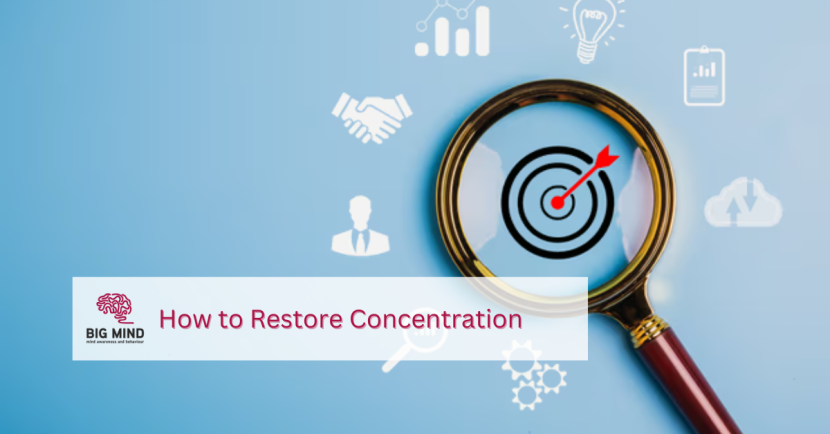
Concentration Problems: Causes, Symptoms, and Solutions
In modern life, people often face difficulties with attention and concentration. The inability to focus means being unable to maintain attention on a task, becoming easily distracted, or lacking mental clarity. This can negatively affect work efficiency, learning quality, and everyday decision-making, leading to mistakes that could have been avoided with proper focus.
Possible Causes of Concentration Difficulties
Concentration problems can stem from various factors—from health issues to psychological and lifestyle-related causes.
Medical causes—concussions, neurological disorders, alcohol misuse, and other health-related conditions.
Life changes—lack of sleep, changes in the home environment, or disruptions to daily routines can interfere with concentration.
Hunger and physical fatigue—going long periods without food or becoming exhausted while working—reduce mental focus.
Stress and anxiety—waiting for exam results, job interviews, or medical tests can significantly distract a person.
Tension and psychological pressure—accumulated responsibilities or increased obligations—make it harder to maintain attention.
Symptoms
Concentration difficulties can appear differently in each person. The most common signs include:
Inability to remember recent events
Difficulty staying focused on the same task or lesson for a long time
“Mental wandering” during conversations or classes
Lack of mental clarity and difficulty expressing thoughts
Inability to complete complex tasks
Frequent errors caused by carelessness
How to Overcome Concentration Difficulties
Treatment or solutions depend on the underlying cause. If the problem is not related to serious medical conditions, small lifestyle changes can significantly improve attention.
Healthy nutrition—a balanced diet with whole grains, fruits, vegetables, and proteins.
Regular eating habits—eating smaller meals several times throughout the day.
Adequate sleep—at least 7–8 hours of quality sleep per night.
Stress reduction—reading, exercising, or engaging in relaxing hobbies.
Medical assistance—if concentration issues are linked to health conditions, professional diagnosis and treatment are necessary.
Concentration difficulty is a problem that should not be underestimated. Ignoring it can lead to serious consequences—from reduced academic and work performance to cognitive and health complications. Paying attention to the symptoms and taking appropriate steps helps maintain mental clarity and overall quality of life.
Article Author: Hala Baydoun, Arabic Language Teacher

Հեղ.՝ Big Mind
Հրապարակվել է ՝ 30 Հոկ 2025